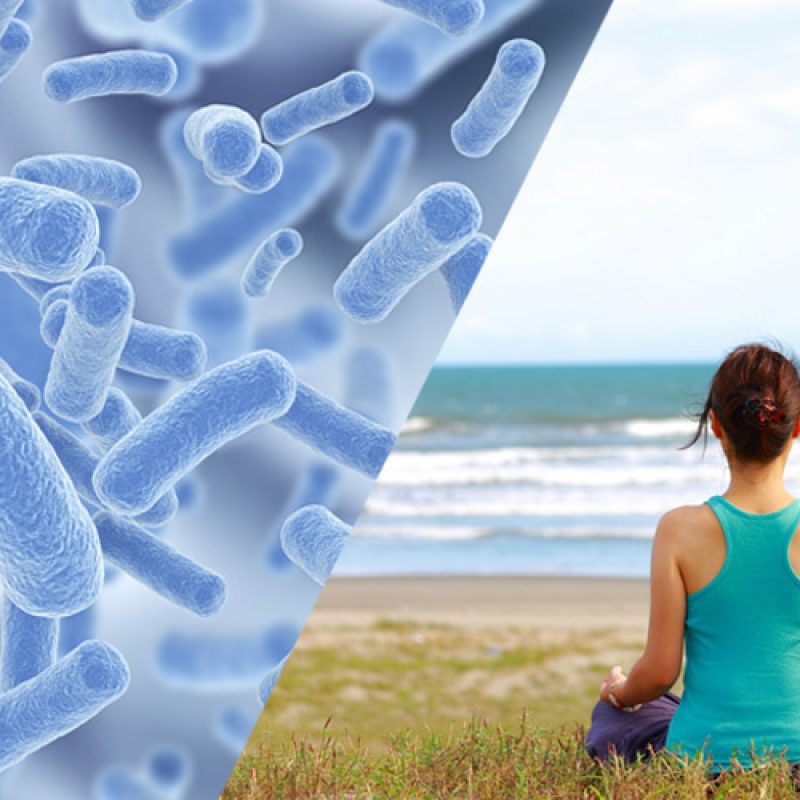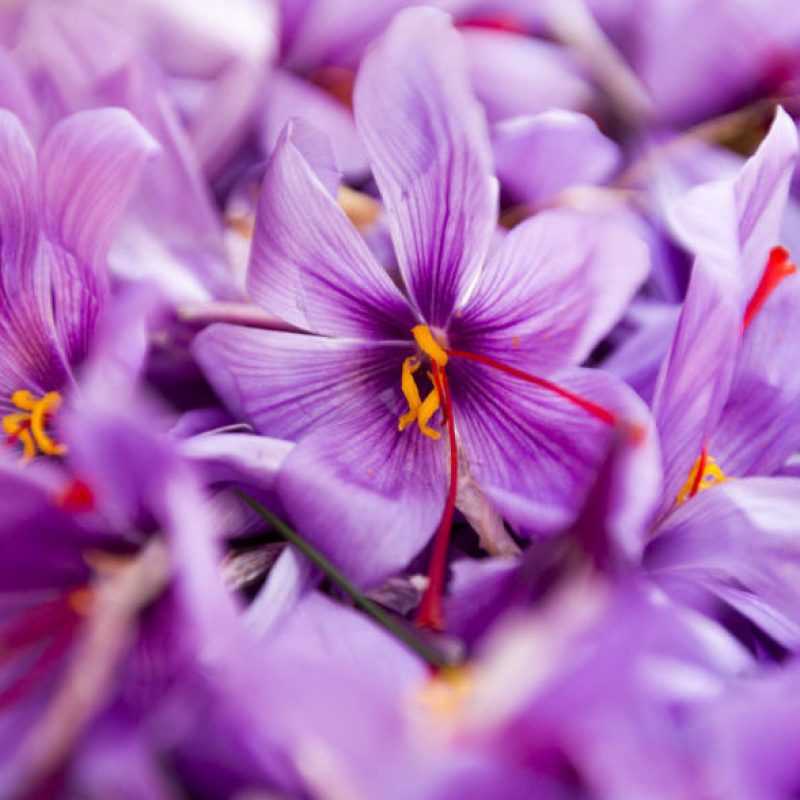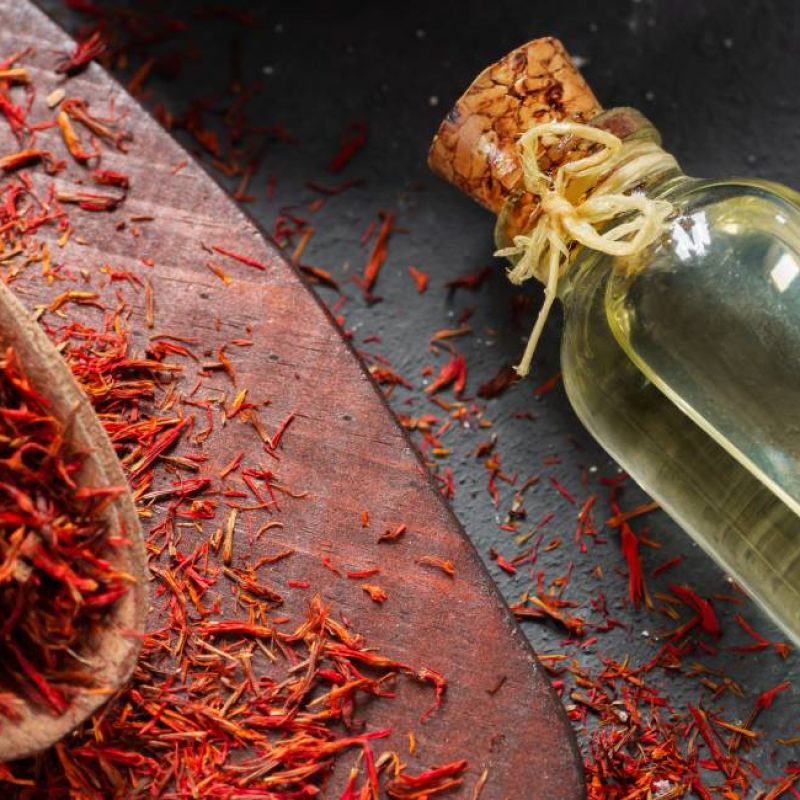Depressive symptoms affect millions of people worldwide, ranging from occasional sadness to persistent feelings of hopelessness that can interfere with daily life. While antidepressant medications and psychotherapy are the standard treatments for depression, concerns about side effects and a desire for more holistic options have led many individuals to explore natural alternatives.
The increasing interest in natural supplements for mood regulation has brought attention to two powerful botanicals: Scutellaria and Saffron. Both have long histories of traditional use for promoting emotional balance and reducing stress. Recent clinical research, including a double-blind, placebo-controlled study published in Nutrients (2023), has investigated the potential benefits of combining these two supplements for individuals with mild-to-moderate depressive symptoms.
Understanding mild-to-moderate depressive symptoms
Mild-to-moderate depressive symptoms are often underestimated, yet they can significantly impair an individual’s quality of life. These symptoms may include persistent feelings of sadness, low energy, reduced motivation, irritability, poor concentration, and disrupted sleep. While they are not as severe as major depressive disorder, they can affect a person’s ability to work, maintain relationships, and enjoy daily activities.
Globally, depressive symptoms are among the leading causes of disability. According to the World Health Organization, more than 280 million people are affected by depression. Despite the prevalence of these symptoms, many individuals avoid conventional treatments due to concerns about medication side effects, the potential for dependence, or personal preference for natural health solutions.
Natural supplements are increasingly sought after for their perceived safety, accessibility, and holistic approach. Rather than altering brain chemistry in an artificial way, many natural remedies aim to support the body’s inherent processes, promoting emotional well-being through balance and restoration.
Scutellaria, an ancient herb for modern mental health
Scutellaria, commonly known as Skullcap, is a genus of flowering plants traditionally used in herbal medicine. In Traditional Chinese Medicine, Scutellaria baicalensis (commonly called Chinese Skullcap) has been prescribed for centuries to treat conditions related to inflammation, anxiety, and insomnia.
The root of Scutellaria baicalensis contains several bioactive compounds, with baicalin, baicalein, and wogonin being the most prominent. These flavonoids have been extensively studied for their antioxidant, anti-inflammatory, and neuroprotective effects. Baicalin, in particular, is believed to influence the GABA (gamma-aminobutyric acid) system in the brain. GABA is an inhibitory neurotransmitter that helps reduce neuronal excitability, promoting calmness and relaxation.
Modern research suggests that Scutellaria’s flavonoids may modulate neurotransmitter activity and reduce neuroinflammation, two factors implicated in the development of mood disorders. Although most research has been conducted in preclinical settings, these findings provide a scientific rationale for its traditional use in managing stress and mood imbalances.
Saffron, the golden spice with antidepressant properties
Saffron, derived from the stigma of the Crocus sativus flower, is often referred to as the “golden spice.” Historically, it has been valued not only for its culinary applications but also for its medicinal properties. In ancient Persia and Greece, saffron was used as a mood-enhancing agent and an aphrodisiac.
Saffron’s active compounds include crocin, crocetin, and safranal. These constituents are thought to exert antidepressant effects by modulating neurotransmitters such as serotonin, dopamine, and norepinephrine. Crocin, in particular, has shown potential to inhibit serotonin reuptake, a mechanism similar to that of many conventional antidepressant medications.
Modern clinical trials have demonstrated saffron’s potential for improving mood and reducing symptoms of depression. While these studies primarily focused on saffron alone, its inclusion in combination formulas—such as the one explored in the Nutrients study—highlights its potential synergy with other mood-regulating botanicals.
The science behind combining scutellaria and saffron
While both Scutellaria and Saffron have demonstrated individual benefits for mood regulation, their combined effects had not been rigorously studied until recently. The randomized, double-blind, placebo-controlled study published in Nutrients (2023) evaluated a supplement containing Scutellaria baicalensis and Crocus sativus (Saffr´activ ®) in adults experiencing mild-to-moderate depressive symptoms.
Study design and participants
The study included 180 adults with mild-to-moderate depressive symptoms, as assessed by standardized psychological measures such as the Depression, Anxiety and Stress Scale (DASS-21) and the Positive and Negative Affect Schedule (PANAS). Participants were randomized into two groups: one receiving the active supplement and the other receiving a placebo.
The active supplement consisted of 20 mg of Scutellaria baicalensis (Scutell´up) extract and 30 mg of Crocus sativus (Saffr´activ ®) extract. Participants took the supplement daily over a period of eight weeks, with assessments at baseline, three weeks, six weeks and two weeks post treatment.
Results and key takeaways
The participants who received the combined Scutellaria and Saffron supplement demonstrated significant improvements in mood compared to the placebo group. Notable findings included:
- A reduction in total DASS-21 scores, indicating lower levels of depression, anxiety, and stress.
- Improvements in positive affect and reductions in negative affect as measured by PANAS.
- Sustained mood improvements over the eight-week period.
These outcomes suggest that the combination of Scutellaria and Saffron may offer an effective and well-tolerated option for managing mild-to-moderate depressive symptoms.
Benefits of natural supplements for depressive symptoms
One of the main reasons people seek natural alternatives is the potential for fewer side effects compared to pharmaceutical treatments. Antidepressant medications can sometimes cause unwanted effects such as weight gain, sexual dysfunction, emotional blunting, and gastrointestinal issues. In contrast, the combined Scutellaria and Saffron supplement demonstrated a favorable safety profile in the Nutrients study, with no serious adverse events reported.
Natural supplements also offer a holistic approach to mood regulation, addressing underlying factors such as inflammation and oxidative stress. Scutellaria’s neuroprotective effects and Saffron’s modulation of neurotransmitters create a complementary synergy that supports overall emotional well-being.
Compared to conventional treatments, Scutellaria and Saffron may appeal to individuals seeking gentle, non-invasive options. However, it’s important to remember that these supplements are best used as part of a comprehensive wellness strategy, which may include diet, exercise, and stress management practices.
Dosage, safety and considerations
The Nutrients study administered a daily dose of 20 mg of Scutellaria baicalensis (Scutell´up) extract and 30 mg of Crocus sativus (Saffr´activ®) extract over eight weeks. This dosage was found to be effective and well tolerated by participants.
Safety and side effects
No serious adverse events were reported during the study. The supplement was considered safe, with mild and transient side effects being the most commonly reported issues, such as minor gastrointestinal discomfort.
As with any supplement, individuals should consult with a healthcare professional before starting Scutellaria and Saffron, particularly if they:
- Are pregnant or breastfeeding.
- Are taking prescription medications (e.g., antidepressants, anticoagulants).
- Have underlying health conditions.
While the results of the study are promising, Scutellaria and Saffron should not replace prescribed medications without medical guidance. They are best considered as complementary tools for emotional and mental health support.
The combination of Scutellaria baicalensis and Crocus sativus (Saffr´activ ®) represents a promising natural intervention for individuals experiencing mild-to-moderate depressive symptoms. The recent randomized, double-blind, placebo-controlled study published in Nutrients (2023) demonstrated that this supplement significantly improves mood and reduces symptoms of depression, anxiety, and stress, with a favorable safety profile.
For those seeking natural alternatives to support mental health, Scutellaria and Saffron offer evidence-based benefits rooted in both traditional medicine and modern scientific research. While further studies are needed to confirm these findings in larger and more diverse populations, the current evidence suggests that these botanicals may be a valuable addition to holistic mental health strategies.
As always, it is important to approach supplementation thoughtfully, in consultation with healthcare professionals, to ensure the best outcomes for individual health and well-being.
Reference:
Scutellaria baicalensis and Crocus sativus (Saffr´activ ®) Improve Mood in Participants with Mild-to-Moderate Depressive Symptoms: Results of a Randomised, Double-Blind, Placebo-Controlled Study. Nutrients, 2023, 17(5), 809. Available online: https://www.mdpi.com/2072-6643/17/5/809



